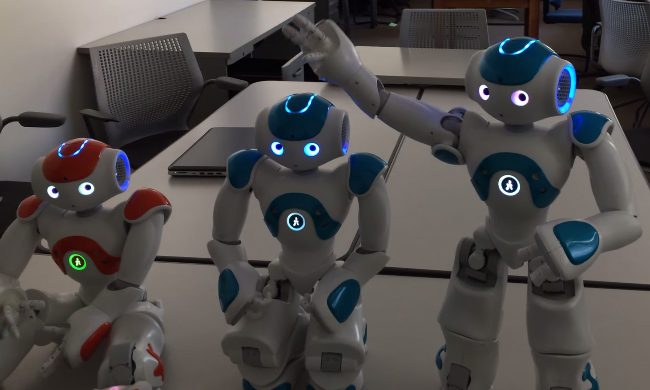Robots will play more and more important roles in our lives in the future, likely becoming essential components of our daily routines. In the process, they may end up taking over the world, but not in a Terminator or Matrix kind of way, but rather in a WALL-E kind of fashion. We might end up using robots for various tasks that will only grow in complexity as robotics advance to the point they can replace humans for plenty of jobs, including tasks that require plenty of creativity. These smarter robots might put 50% of jobs at risk in the U.S. and the U.K., a new report show.
DON’T MISS: John Oliver explains how FanDuel and DraftKings are rigged to rip you off
The Bank of England believes that machines might take over 80 million American and 15 million British jobs over the next 10 to 20 years, CNN Money reports, or 50% of the workforce in each of the two countries.
“These machines are different,” the bank’s chief economist Andy Haldane said. “Unlike in the past, they have the potential to substitute for human brains as well as hands.”
According to the bank, administrative, clerical and production workers might be the first to be replaced by robots in the coming years. That’s not to say unemployment will suddenly rise. Humans will “adapt their skills to the tasks where they continue to have a comparative advantage over machines.”
A recent Oxford University study quoted by Yahoo says that the jobs at risk of being replaced by robots include loan officers, receptionists, paralegals, salespeople, drivers, security guards, fast food cooks, bartenders.
Other jobs including marketers, journalists and lawyers might also be added to the list in the future, founder of Webbmedia Group Amy Webb said at the Milken Global Conference this year.
Haldane says that unlike during the Industrial Revolution, where manual laborers were forced to improve their skills and adapt to more sophisticated jobs, robots will simply replace humans this time around. The more intelligent machines would be able to take over mid-skilled jobs, leaving low-skilled or very high-skilled jobs for humans.
“The smarter machines become, the greater the likelihood that the space remaining for uniquely-human skills could shrink further,” he warned.




